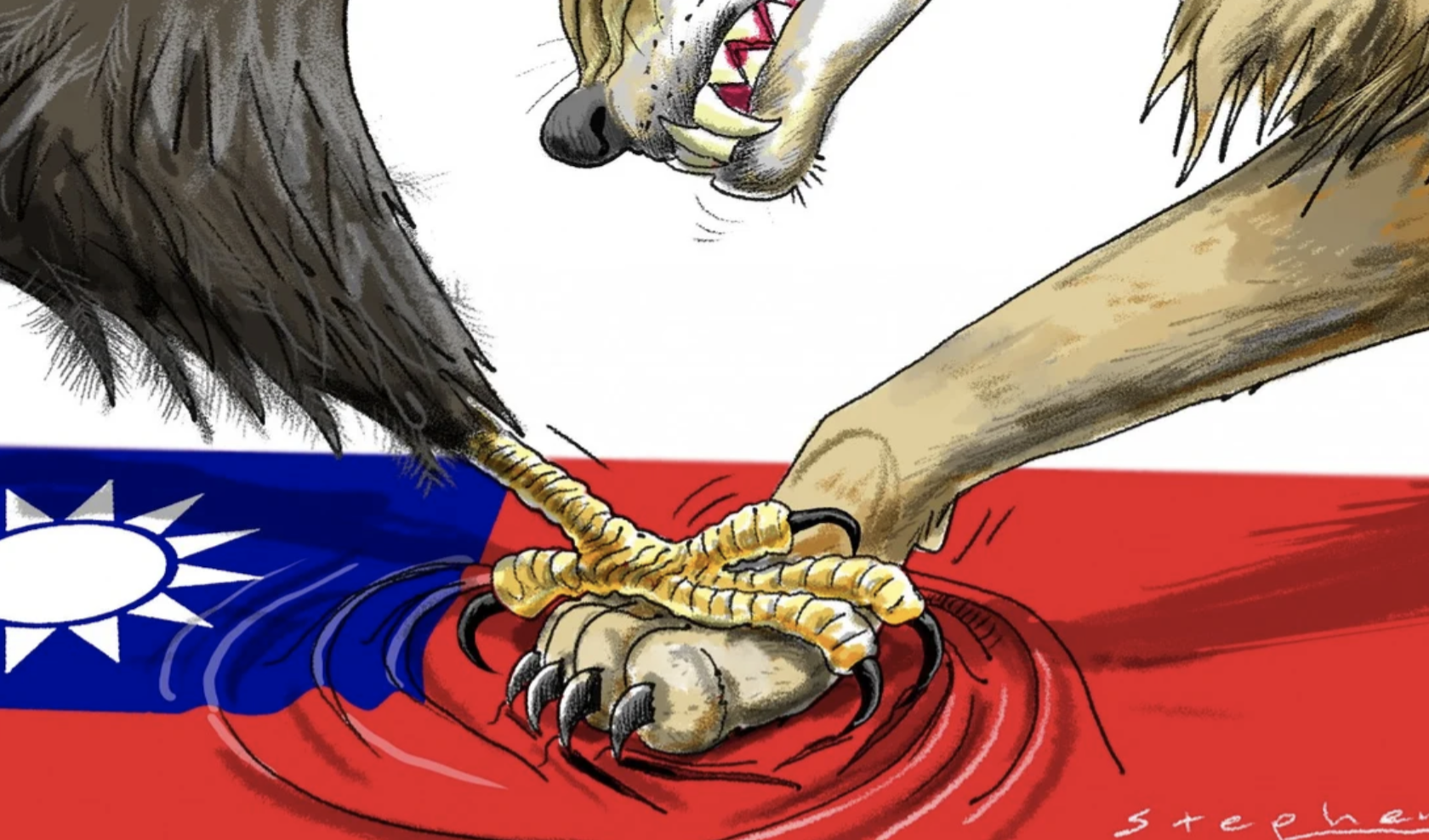TOM PLATE WRITES — Perhaps no gloomier assessment of the China-US relationship can be made than to note that, were it to sink yet another notch or two, there would be no relationship at all. Like a Japanese garden so minimalist that removing one stone might vitiate its existence, the bilateral Sino-American relationship seems unnervingly close to bouncing off rock bottom.
Decades after the Cold War with Moscow, with the shimmer of a potential conflict with Beijing over the horizon, the Pacific Ocean’s current calm might well be nothing more than a deception just before the big storm crashes.
The US 7th Fleet appears to have an expectation of some kind of People’s Liberation Army lurch into Taiwan, or at least a slice of it. Taiwan’s oft-admired democracy might imagine its fellow democracy in the United States would come to shore it up. But taking the side of David – Taiwan, population 24 million – against Goliath – mainland China, population 1.4 billion – might only make sense to those Americans who favour almost any underdog or any sort of democratic government.
On the whole, the Pentagon is sprucing up its weapons of war at warp speed but is not exactly eager to use them. One recent US study concluded that if Beijing was to go on an all-out offensive, America’s ability to save Taiwan’s democracy – short of the nuclear option, which would presumably leave very little for anybody – is problematic.
Taiwan is without question a treasure in many respects. That treasure is also very many miles away, though, as was Vietnam and as is Iraq. America, still recovering from the Donald Trump presidency and with pressing problems at home in addition to fighting the Covid-19 pandemic, will not easily be sold yet another foreign rescue mission.
By contrast, for US President Joe Biden, a war averted because of deft diplomacy that broke the momentum towards flying off the cliff and into the abyss would earn much more than some mere peace prize. It would earn global gratitude.
To be sure, the Chinese military is all spiffed up for action against Taiwan. The island’s outspoken leader – the capable President Tsai Ing-wen – likes Taiwan just as it is and bravely resists Beijing’s entreaties for any measure or manner of unification whatsoever.
Beijing should take the long view. Some serious assessments actually put Taiwan’s military capability (supplied for decades by the West) in Israel’s league, which may be quite the overstatement, but which also suggests it’s no joke. The Chinese military is nowhere near as battle-tested as its American counterpart, either.
What is more, a strike by Beijing against Taipei might well risk snatching defeat from the jaws of victory. From a geopolitical perspective, China is ahead in the game. Taiwan is hardly the 51st state of the US or a new prefecture of Japan, despite the deep history among the three.
The self-appointed democracy defender around the world just will not go away. Is the kind of diplomacy displayed by the Biden administration, designed to match Beijing’s global “wolf warrior” diplomacy, in Taiwan’s best interests? Baiting a China that is endlessly wincing from its “century of humiliation” is tone-deaf.
In private, the US government should say what its president, diplomats and generals think best, but on the public stage the Biden administration might consider showing more respect to China. The US should be sufficiently self-confident not to seek significant reciprocity.
The more it pits itself as the saviour of Taiwan, the more Chinese nationalists overvalue the island as the master key for completing a 21st century middle kingdom.
A Taiwan embroiled in war would pump uncertainty into the world economy from which China draws such great benefit; Taiwan is essential as an exporter of the components modern electronic wizardry needs to work.
Wrap it up in war and you choke the global electronic supply chain just as if you planted a mega-container ship in the middle of a key merchant vessel waterway. The mainland, its economy these days simmering rather than roaring, would cool off even more.
If Beijing parses its priorities more precisely, the rising economic superpower could redirect at least some of its military allocations to modern ploughshares for the countryside – see Scott Rozelle and Natalie Hell’s book Invisible China: How the Urban-Rural Divide Threatens China’s Rise.
So why not? The American writer Henry Adams, great grandson of founding father John Adams, reminds us that politics has always been “the systematic organisation of hatreds”.
The only way to explain why China would choose to initiate a war of overt acquisition when it is far ahead, thanks to decades of plotting patience, or why the US would consider military intervention that would have zero chance of being approved by the UN Security Council, is through an agonising appreciation of the feral forces of hatred and mindlessness.
History’s largest evils flourish when given an egomaniacal push to the hell of war by mad men puffy with rectitude.
And so the dark clouds grow even thicker. To the celebrated British humanities academic Jacqueline Rose – a noted student of Sigmund Freud as well as Sylvia Plath – the human death drive is the subterranean magma of history.
It is a grave mistake to dismiss the validity, she wrote in an essay, of an “unconscious demonic principle driving the psyche to distraction [that] could be said to sabotage once and for all the vision of man in control of his mind”.
That thought just about sums things up. Sorry to be so depressing, but what can be observed at the moment is anything but inspiring.

